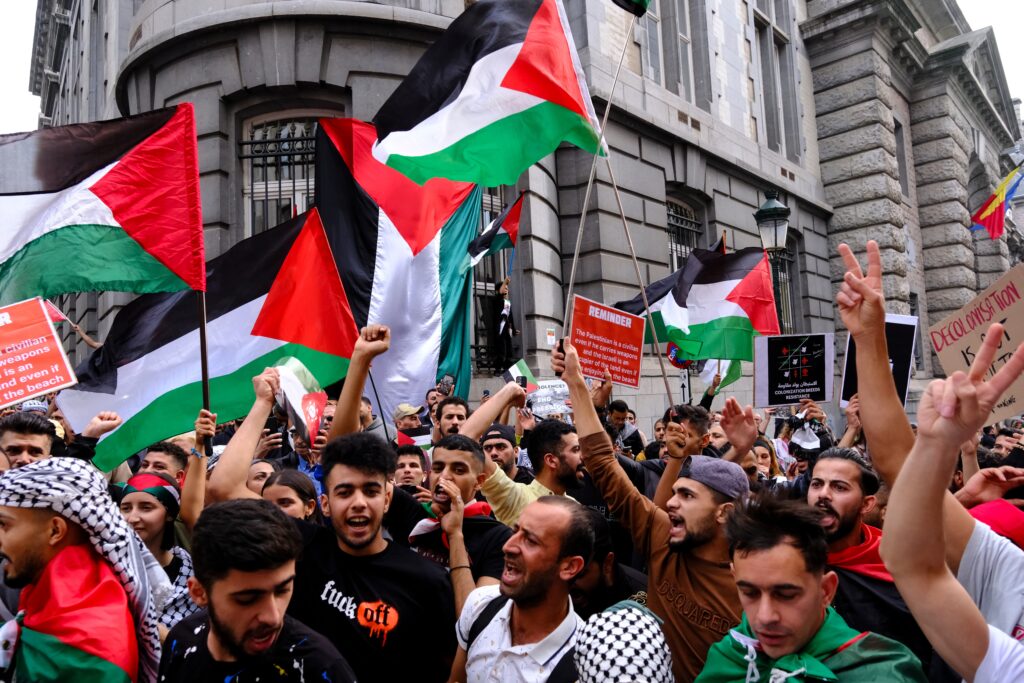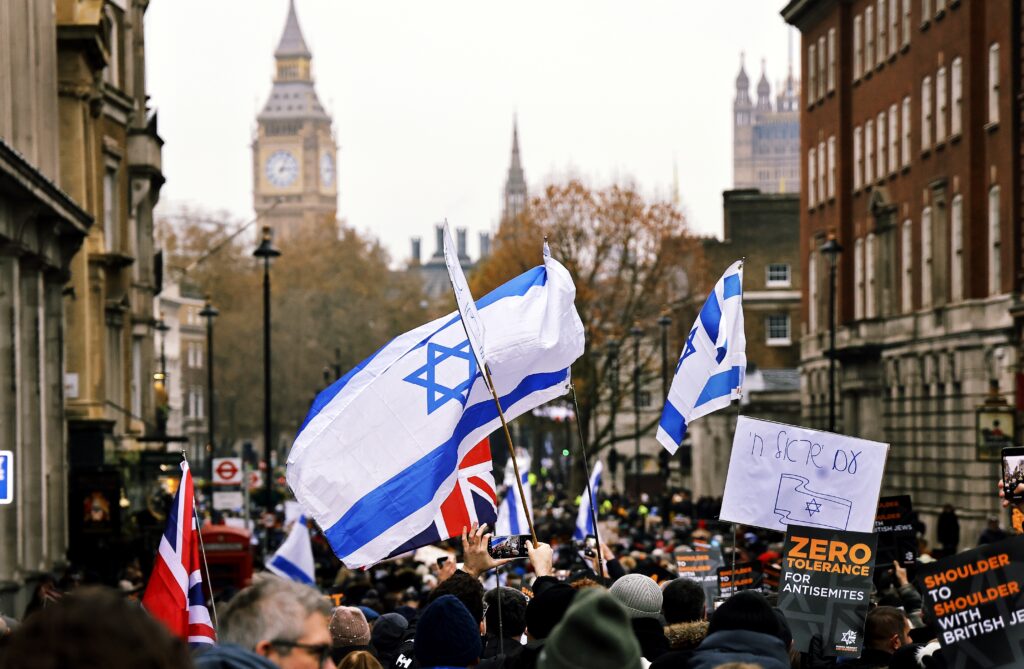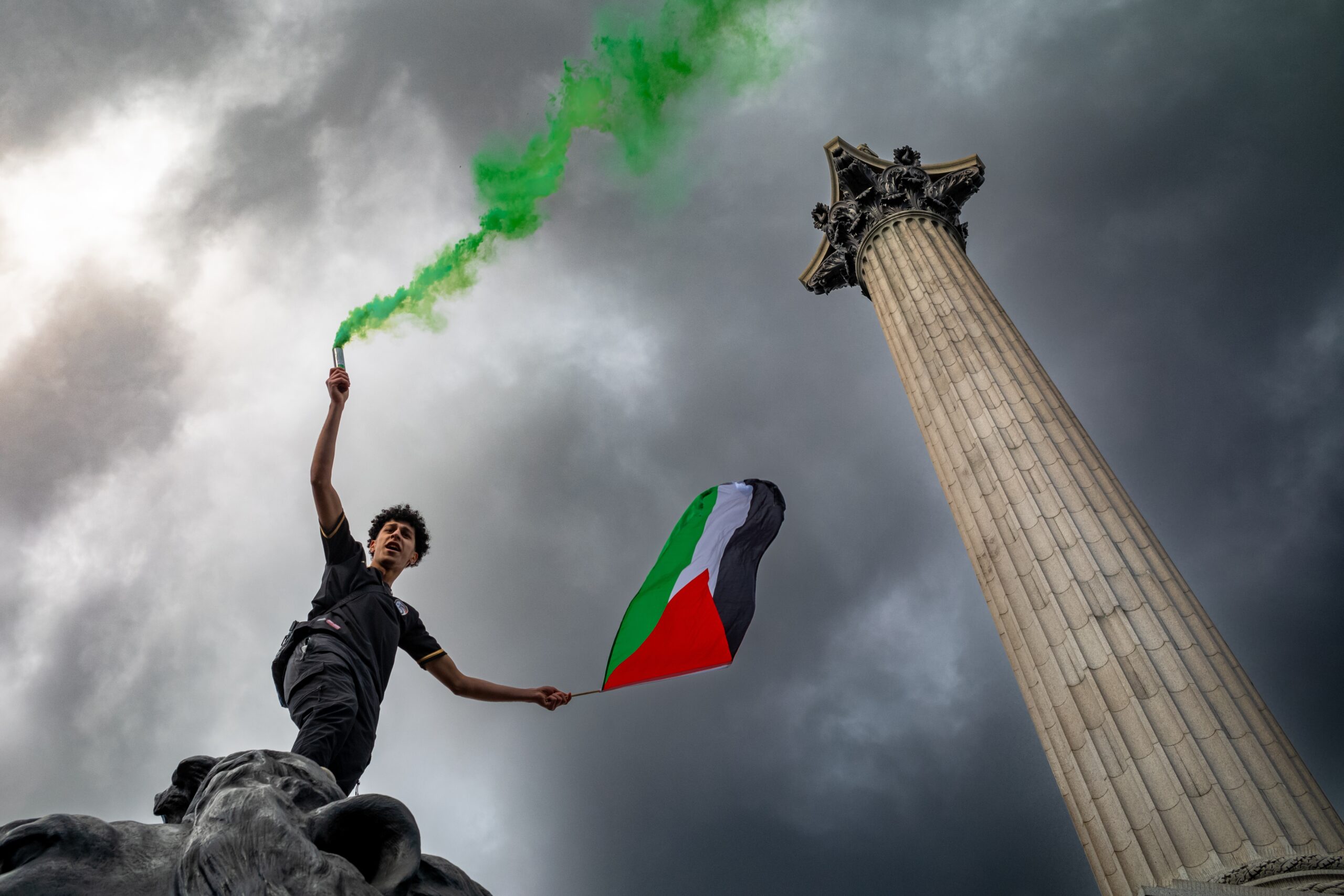Diaspora Affairs Minister Amichai Chikli Declares UK and Belgium “Have Largely Fallen” in Stark Warning to Jewish Communities
Israeli Diaspora Affairs Minister Amichai Chikli issued a stark warning to Jewish communities in the United Kingdom and Belgium during a recent appearance on The Owl podcast hosted by entrepreneur Liron Rose. Chikli called on Jews in both countries to “get up and leave,” arguing that the political and social climates in those nations have deteriorated to a point of serious concern.
“Belgium and the UK have largely fallen. They have fallen,” Chikli declared during the interview. He warned that unless there is a dramatic political shift, both countries face being “conquered by Islamists.” According to Chikli, the growing influence of radical Islamist elements has compromised the security and cultural fabric of these European societies, leaving Jewish communities vulnerable and unprotected.
The minister placed much of the blame on what he described as the failure of Europe’s multicultural policies. “Multiculturalism in Europe has failed miserably,” he stated, claiming that instead of fostering inclusion and mutual respect, these policies have led to the empowerment of extremist ideologies. He went so far as to say that nations like the UK are now “held by the Islamists and simply submissive,” offering little resistance to what he views as a dangerous trend.
Amichai Chikli is part of the Likud Party and currently serves as the Minister of Diaspora Affairs and Combating Antisemitism, having previously held the position of Social Equality Minister until early 2024.
Piers Morgan gets casually blasted by Israeli Minister @AmichaiChikli for being a Jew-hater.
— dahlia kurtz ✡︎ דליה קורץ (@DahliaKurtz) June 23, 2025
Piers — the person who has probably blocked more Jews on this platform than anyone else — can't press block here.
Instead, he repeatedly interrupts, so the Minister can't answer. pic.twitter.com/2AIOJThLvB
The current concerns about Jewish safety in Europe echo historical patterns of persecution and exile. England has a particularly dark history regarding its Jewish population, with King Edward I expelling the country’s entire Jewish population in the autumn of 1290, following almost two centuries of Christians and Jews living alongside each other. This expulsion lasted for over 350 years, until Jews were unofficially readmitted during the mid-17th century under Oliver Cromwell.
The medieval expulsion came after decades of increasing restrictions and persecution. Throughout the 13th century, English Jews faced mounting economic pressures, religious persecution, and legal restrictions that effectively marginalized them from society, acting as a crucible of European antisemitism and establishing patterns that would be replicated across Europe.
In Belgium, Jewish communities have faced historical challenges. The Holocaust devastated Belgian Jewry, with approximately 25,000 of the country’s 90,000 Jews murdered by the Nazis. The Association of Jews in Belgium (AJB), though directed by the Germans, was run by Jews and acted as an “organizational ghetto,” allowing the Nazis to deal with Belgian Jews as a unit, ultimately registering 43,000 Jews in the country.
Today’s Jewish communities in both countries face new pressures amid changing demographics and rising antisemitism. Belgium’s Jewish community numbers approximately 29,000 to 40,000 people out of a total population of 11 million, with the majority residing in Brussels and Antwerp, making them a small but historically significant minority.

The UK hosts one of Europe’s largest Jewish communities, with an estimated 280,000 to 300,000 Jews. However, both communities report alarming levels of antisemitic incidents and growing concerns about safety.
Recent data supports some of Chikli’s concerns about deteriorating conditions for Jewish communities. In Belgium, about half of all Jews reported experiencing antisemitic harassment over the previous twelve months (48%), while antisemitic incidents have shown a disturbing upward trend, with 80 incidents reported in 2012 representing a 23% increase from 2011 and an overall increase of 34% since 2000.
Across Europe, Jewish people have experienced significantly more antisemitic incidents since October 2023, with some organizations reporting an increase of more than 400%. A comprehensive survey found that 80% of Jewish respondents feel that antisemitism has grown in their country in the five years before the survey.
Chikli has previously spoken about antisemitism in England, claiming that the government was not doing enough to combat it. “London is one of the top 10 cities in the world for anti-semitic discourse. Half of England’s Jews are considering leaving the country, and more than 60% have experienced anti-semitism or know someone who has,” he told Fox News.
The minister’s warnings specifically target what he describes as Islamic antisemitism, a phenomenon that has become increasingly prominent in European Jewish communities’ security concerns. Chikli has previously linked the rise in antisemitism in Western European countries with their failure to combat rising Islamist violence as a result of mass immigration.
London Mayor Sadiq Khan acknowledged that since the October 7th massacre, the city had seen a rise in attacks on both Jews and Muslims. “The police continue to take action against anyone breaking the law, including anyone committing hate crime offenses,” Khan stated. However, a spokesperson for Khan added, “The Mayor speaks with members of the Jewish community regularly, and despite their ongoing and real concerns, most don’t agree with the extent of the language used by the minister.”

Beyond physical security concerns, Jewish communities in both countries face mounting pressure on religious practices that are fundamental to Jewish identity. In recent years, there have been ongoing debates about ritual circumcision and kosher slaughter across Europe, with some jurisdictions attempting to ban or severely restrict these practices.
Belgium has been at the center of several such controversies, with the Flanders region attempting to ban kosher and halal slaughter, though these efforts have faced legal challenges. Similar debates have occurred in various European countries, with Jewish and Muslim communities arguing that such restrictions constitute attacks on religious freedom and could make their continued presence in Europe untenable.
Chikli’s warnings reflect broader concerns about the changing face of European society and the place of Jewish communities within it. His criticism of multiculturalism echoes debates across the continent about integration, immigration, and the preservation of European Jewish life.
The minister’s stark language about European nations being “conquered by Islamists” represents a significant escalation in rhetoric from an Israeli government official, potentially straining diplomatic relations while highlighting genuine security concerns expressed by many European Jews.
As antisemitic incidents continue to rise and Jewish communities report increasing anxiety about their future in Europe, Chikli’s warning serves as both a wake-up call and a reflection of the complex challenges facing European Jewish life in the 21st century. Whether his dire predictions prove accurate or whether European societies can address these concerns while maintaining their multicultural character remains to be seen.




